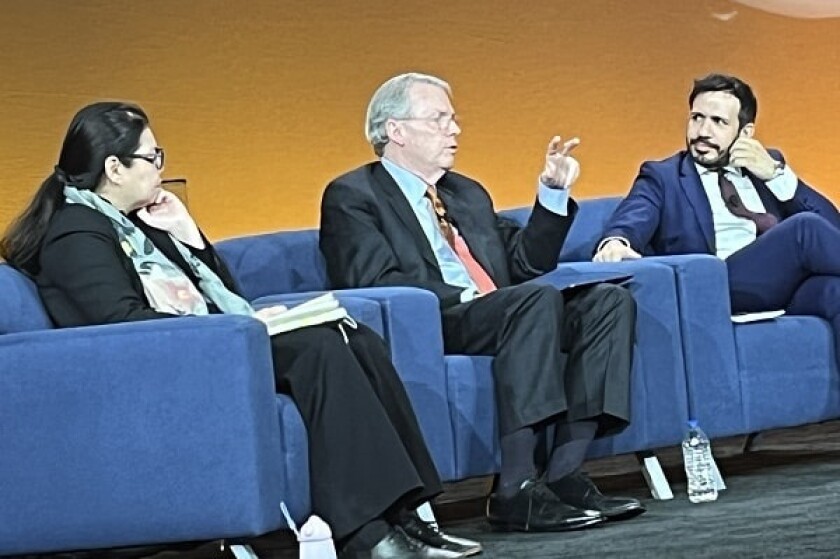Heads and senior officials at seven intellectual property offices highlighted the benefits of having unified IP agencies and revealed the challenges of achieving financial balance at this year’s INTA Annual Meeting.
Officials from IP offices in the Philippines, Switzerland, Canada, Spain, the US, Singapore and the UK spoke about these issues at a panel called ‘IP Office of the Future: How to Build an Action Plan for a 21st Century IP Office’ in Washington DC today, May 2.
Catherine Chammartin, director general of the Swiss Federal Institute of Intellectual Property, said her office handled all IP rights – including trademarks, patents and copyright – and “wouldn’t have it any other way”.
Chammartin noted that being unified helped the office digitalise its services more efficiently. She added that she tried to think of a disadvantage to such a policy because the panel’s task was to discuss the pros and cons of bringing these rights under one roof.
But she couldn’t find any cons, she said. The only hurdle she could think of was that such a system could create financial challenges. Patent and trademark services were largely financed from fees from users, but copyright services weren’t as lucrative, and her IP office had a deficit in this area, she said.
“I still think it’s important to bring it together, though. And if you accept the principle that we finance policy work using patent and trademark fees, I think you also have to accept that we finance copyright policy work, which allows us to have this holistic approach.”
Rowel Barba, director general of the Intellectual Property Office of the Philippines, who also runs an office in which IP rights are integrated, agreed that having such a system was a good thing.
He said the integration of IP helped the office develop consistent policies and programmes, and noted that the agency’s bureau of patents pioneered a learning management system, which was being adapted by the other bureaus at the office.
Finances in order
Speakers also discussed how they managed their finances to properly support services.
José Antonio Gil Celedonio, director general of the Spanish Patent and Trademark Office, asked whether IP offices such as his should funnel more money towards strengthening current services or offering new services.
In answering his own question, he said it was important to do both, noting that he wanted to improve current services.
Sources also discussed when IP officials should consider raising fees.
Konstantinos Georgaras, interim CEO of the Canadian Intellectual Property Office, said that although there was never a good time to raise fees, there were some considerations that could help limit the impact on stakeholders.
He noted that offices should build in as much lead time as possible before fees were raised to give stakeholders time to prepare, and that they should look at whether there were any external forces – such as recession or pandemic – that could make fee increases problematic.
Agencies should also understand how different prices could affect various customers, such as SMEs or universities, the panel opined.
David Gooder, commissioner for trademarks at the USPTO, Rena Lee, chief executive at the Intellectual Property Office of Singapore, and Tim Moss, CEO of the UKIPO, also spoke on the panel.
José Luis Londoño, director of policy development at INTA, moderated the talk.
The INTA Annual Meeting is being held this week at the Walter E Washington Convention Center in Washington DC.










